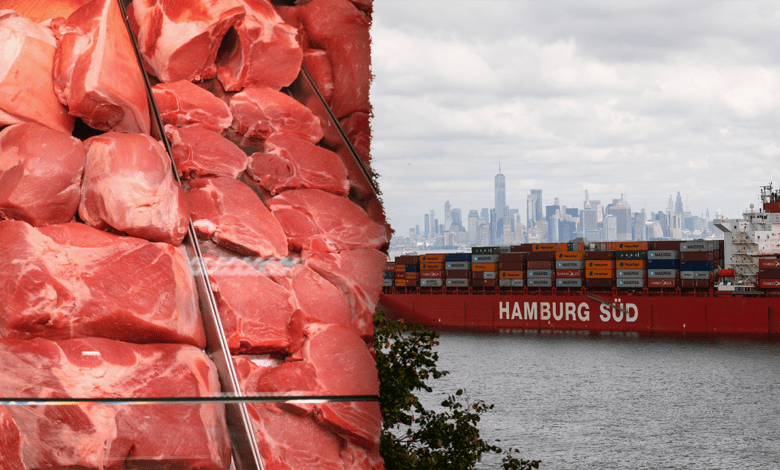
The dockworkers strike along the East and Gulf Coast poses a threat to U.S. dominance on the global stage, according to Meat Export Federation President Dan Halstrom.
Halstrom noted that although the financial impact of the strike is profound, the greater problem is that we are putting our nation’s reputation as a reliable beef and pork supplier in “jeopardy.”
“Our estimate is that for every week of this shutdown, it’ll impact beef and pork industries to the tune of at least $100 million. And that’s the financial impact. The even larger impact is that our reputation as one of the leading, most reliable partners in the world as a supplier of beef and pork will be put in jeopardy because the rest of the world, our competitors globally, are watching this,” Halstrom explained, adding that “Australians on the beef side and the Europeans on the pork side” are ready to “step in.”
US PORT STRIKE: GM, WALMART, LG TOP IMPORTERS AT IMPACTED PORTS
Halstrom warns that the port strikes’ damage to the U.S.’s meat export reputation will be “felt long term.”
The U.S. Meat Export Federation CEO continued, breaking down the troubling impact the port strike has already evoked on the U.S. economy.
BUSINESS GROUPS CALL ON BIDEN TO INTERVENE IN PORT STRIKE
“I think the congestion and the impact is already happening, we just maybe haven’t seen it yet. But we’re seeing it within our supply chain. I mean, the exporters that are exporting the product are already working on rerouting product to the West Coast, for example,” Halstrom continued.
However, Hastrom also noted that diverting products to the West Coast is “only a short-term solution,” as reports of delays are beginning to trickle in.
“The supply chain is very efficient. But when you take out roughly half of our capacity to export containerized ship, the impact is real. The impact is now,” he said.
GET FOX BUSINESS ON THE GO BY CLICKING HERE




